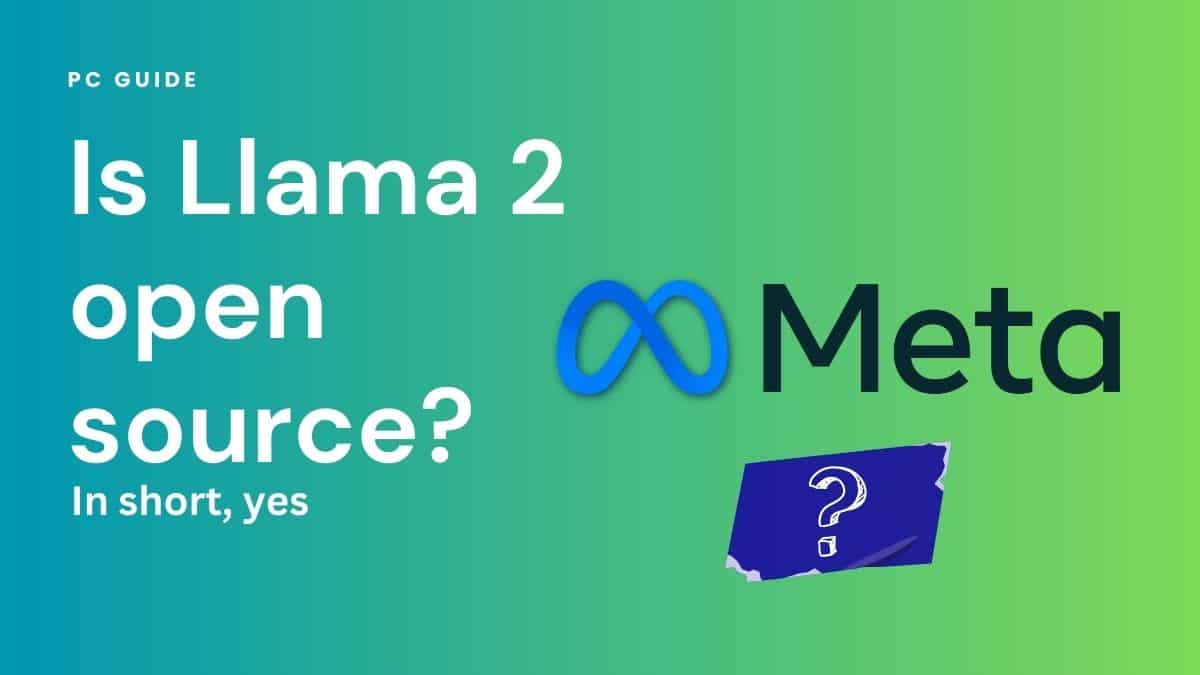Is Llama 2 open source? In short, yes

Table of Contents
Meta has re-entered the market of artificial intelligence models with the recent launch of Llama 2, and it’s causing quite a stir. The buzz has many people asking questions about if Llama 2 is open source. An open source AI model is one that has been designed to be made publically available, and can be modified and integrated into other software without needing to be purchased first. This article will explain if Llama 2 is an open source software, so keep reading to find out more.
Essential AI Tools
Is Llama 2 an open source software?
Yes, Llama 2 is open source. Meta has created its powerful large language model to be free to use for both commercial and research purposes. Allowing open access to the platform for developers to modify and fine-tune not only enables AI capabilities to advance at a greater pace overall, but also makes the LLM safer by putting it under public scrutiny. It is an act in the democratization of AI by Meta, that allows the general public to have a stake in artificial intelligence developments.
Prime Day may have closed its doors, but that hasn't stopped great deals from landing on the web's biggest online retailer. Here are all the best last chance savings from this year's Prime event.
- Sapphire Pulse AMD Radeon™ RX 9070 XT Was $779 Now $719
- AMD Ryzen 7 7800X3D Processor Was $449 Now $341
- Skytech King 95 Ryzen 7 9800X3D gaming PC Was $2,899 Now $2,599
- LG 77-Inch Class OLED C5 TV Was $3,696 Now $2,996
- AOC Laptop Computer 16GB RAM 512GB SSD Was $360.99 Now $306.84
- Lexar 2TB NM1090 w/HeatSink SSD Was $281.97 Now $214.98
- Apple Watch Series 10 GPS+ Smartwatch Was $499.99 Now $379.99
- AMD Ryzen 9 5950X processor Was $3199.99 Now $279.99
- Garmin vívoactive 5 Smartwatch Was $299.99 Now $190
*Prices and savings subject to change. Click through to get the current prices.
The Llama family consists of three models that increase from seven billion parameters, to 13 billion, to an impressive 70 billion parameters. You can request to download the Llama 2 software for free via the Meta website, but not before making sure to read the acceptable use policy, as well as the responsible use guide to ensure you don’t violate Meta’s terms and conditions while developing with Llama.
While it apparently can’t match GPT-4 in performance, there is a possibility that another developer could now have the chance to use Llama 2 to develop a rival platform to ChatGPT, Google Bard, or Anthropic’s Claude 2. More information on the capabilities of Llama 2 can be found in a Meta research paper on the subject. Once again, Meta has taken steps to make sure it has a competitive edge over other tech giants.
Final thoughts
There you have it, Meta has decided to make Llama 2 an open source model that can be accessed by developers without a high price tag. Naturally, there is somewhat of a debate concerning the safety and regulations of having open source software available to a wider audience. However, Meta has remained strong in their argument that a free-to-use model will continue to have a positive impact on the artificial intelligence ecosystem.

